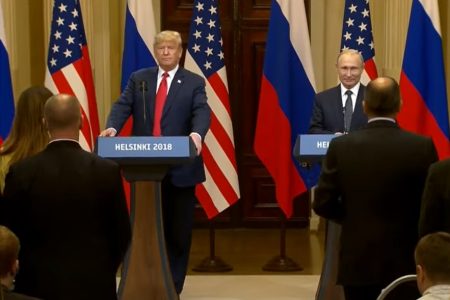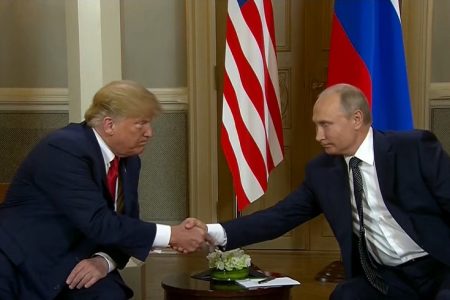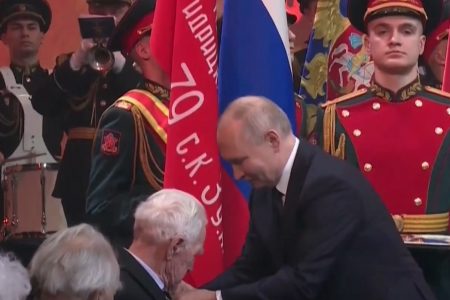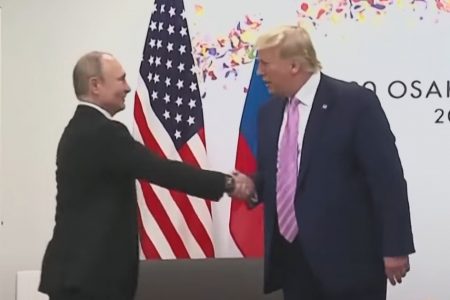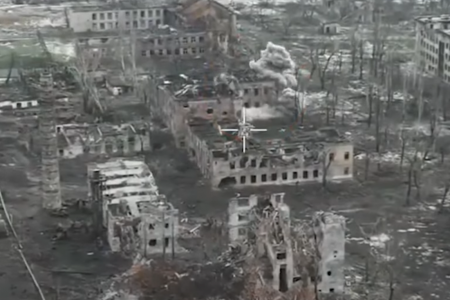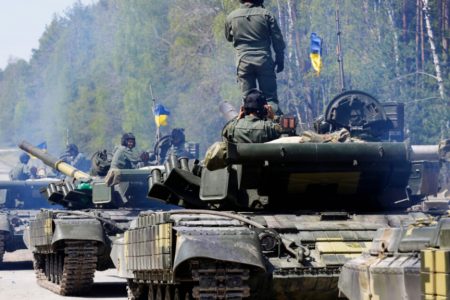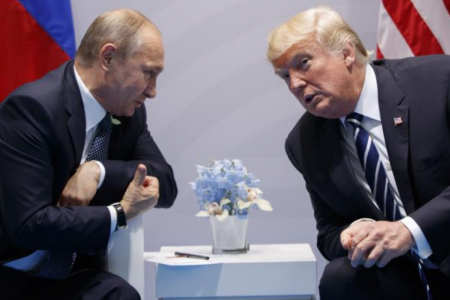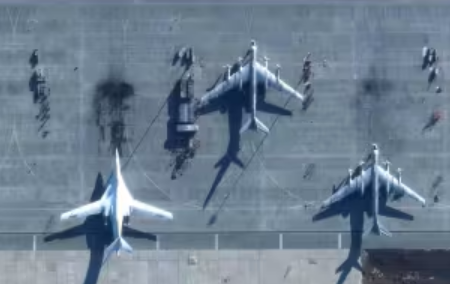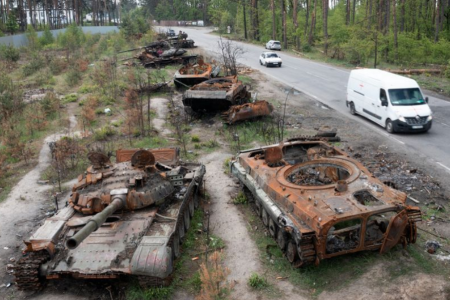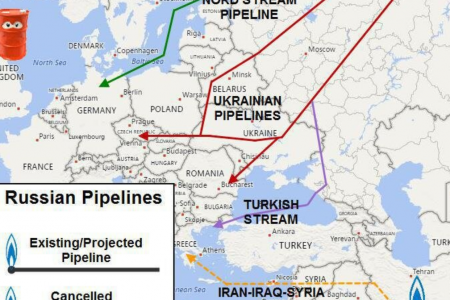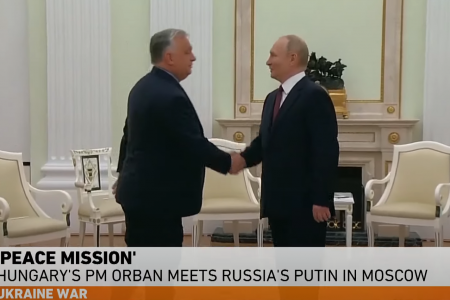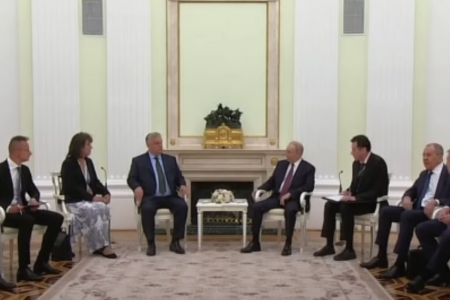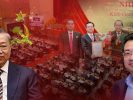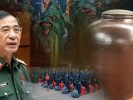The US Embassy in Vietnam showed signs of interest in the Dong Tam massacre shortly after the Hanoi Police Department publicized the findings of the investigation, which is considered “controversial” regarding the land disputes case leading to deadly raids earlier this year.
On June 12, the Hanoi Police Department’s Investigation Agency announced the conclusion of criminal investigation, which proposed prosecuting 29 local land petitioners for murder and resisting on-duty state officials during the brutal police assault in Hoanh village on January 9.

The 47-page investigation conclusion alleges that Dong Tam people “had a prior preparation” by “gathering forces, contributing money to buy weapons” as well as planning “assigning tasks to each individual” and “proactively using weapons to attack \to destroy the task force.”
Three days later, a representative of the US Embassy in Hanoi held talks with activist Trinh Ba Phuong to find out some issues about the investigation conclusion as well as the situation of the detained land petitioners of Dong Tam, including access to lawyers and their psychology.
“The embassy official said they had read the whole investigation conclusion,” said Phuong, a land rights activist in Duong Noi village. “They also said that they have read my articles posted on my Facebook page analyzing the irrational points in the investigation conclusion, in which the focus is on the absurdity in the shooting distance of Kinh and the only gasoline can 5-6 liters that could burn 3 mobile police officers. That is absurd.”
In the morning raid on January 9 in Dong Tam, Mr. Le Dinh Kinh, a party member and spiritual leader of the land petitioners in the struggle to “protect their land,” was shot to death by security forces. Hanoi police conclude that the 84-year-old man “used a metal tube with a pig launcher, a grenade to attack the task force” and thus Mr. Kinh’s behavior constitutes a “murder.”
Still according to the conclusion of the investigation, the people of Dong Tam “poured gasoline into the pit many times and set the fire, which is the direct cause of the 3 police officers sacrificing.”
Talking to VOA after receiving the investigation conclusion from the police, the lawyers who pleaded to defend the case in Dong Tam said that they were a little surprised because “the investigation conclusion was made so fast.”
According to attorney Ngo Anh Tuan, it usually takes about a year to draw conclusions on a case of up to 29 people prosecuted as in Dong Tam.

Phuong said he also spoke with the US embassy attaché, who he did not want to identify, about access to lawyers for the prosecuted Dong Tam people.
“When they asked about the lawyer, I also said that most of the lawyers were licensed to defend the detained people from Dong Tam,” Mr. Phuong said. “However, the lawyers’ access to the detained land petitioners is almost nonexistent. Only a few lawyers get to meet exactly once and most of them haven’t met their clients yet.”
Lawyer Dang Dinh Manh, a participant in defending the case, told VOA on June 12 that he and other lawyers had been in contact with some defendants but were not in direct contact and under “very limit.”
In a conversation with the US embassy representative on June 15, Mr. Phuong said that the conclusion of the investigation is not objective “because the Hanoi police are the agency that directly shoots and kills Kinh in his bedroom. They have no right to investigate and prosecute so that they themselves violated Vietnam’s Criminal Procedure Code.” He also raised concerns about corporal punishment, a situation that he thinks is common in Vietnam.
Amnesty International on January 16 criticized Vietnam for increasing its crackdown on arrests and censorship on social networks to quell the debate about bloody land disputes in Dong Tam. It also asked Hanoi authorities “to clarify what happened on January 9, especially about the alleged beating of an elderly woman. Anyone who is suspected of resorting to violence, whether the police or the Dong Tam people, must be brought to justice.”
The incident on January 9 in Dong Tam is thought to have originated from a land dispute that lasted for many years and became a hot spot when people in this commune thought that tens of hectares of Dong Senh land were agricultural land of the commune, not defense land. From December 31, 2019, a number of units of the Ministry of Defense collaborated with functional forces to build a fence to protect Mieu Mon airport as planned but faced opposition from Dong Tam people, leading to the raid on Jan 9.
In February of this year, US Ambassador to Hanoi Daniel Kritenbrink said at a meeting with the Vietnamese community in San Jose, California, that the US not only stood out to observe the Dong Tam incident but had much interest in the case. However, he said it was difficult to know the truth about what happened there and regretted that there were people who died in the case and hoped that the two sides would resolve the issue peacefully and in the spirit of the rule of law.
Phuong, who met the US embassy representative in Hanoi in February to discuss the Dong Tam case, said he had “conveyed the words of the people of Dong Tam to the US embassy official that he really wanted to see international intervention to the case, because in Vietnam, it is very difficult for the people to have justice with the current justice system.”

“I have grounds to believe that the Hanoi Police Investigation Police Agency has no authority to prosecute, criminally investigate the Dong Tam case as well as issue investigation conclusions.”
That is the words of attorney Dang Dinh Manh, one of the lawyers involved in defending in the Dong Tam case, in response to Nguoi Viet daily newspaper on June 13, the day after the release of the police’s conclusion.
“The investigation conclusion is the first criminal proceeding document in the case that attorneys have access to in the course of participating in the case. Through this document, we officially learned that the ‘author’ attacked the house of Mr. Le Dinh Kinh, a unit of the Hanoi Police Department,” lawyer Manh said.
The armed attack of the Vietnamese communist government occurred on January 9, killing Mr. Le Dinh Kinh, the “spiritual leader” of Dong Tam people. And now, 25 of the 29 people were charged with “murder” and face sentences ranging from 12 years in prison to life imprisonment or the death penalty. The remaining four were indicted on charges of “resisting on-duty state officials” with punishments ranging from 2 to 7 years in prison.
According to the lawyer, in this case, Ms. Du Thi Thanh, the widow of Mr. Le Dinh Kinh, sent a complaint about the crime of murdering her husband. A number of other citizens also sent a similar denunciation. Both denunciations questioned the police forces entering Mr. Le Dinh Kinh’s house could be “a crime to kill citizens.”
“In this case, it is obvious that the unit of the Hanoi Police Department is also the subject of criminal prosecution. Accordingly, a unit of the City Police Department, the Investigation Police Department, once again prosecuted, investigating the case was unable to ensure the impartiality and impartiality as prescribed in Article 21 of the Law on Criminal Procedure Code,” lawyer Manh added.
“So, as a lawyer participating in the defense of the case, I will soon issue a written request to transfer the case file to the higher level Investigation Police Agency under the Ministry of Public Security to ensure objectivity and imparity in investigating the case as well as ensuring legal proceedings,” attorney Manh told Nguoi Viet newspaper.
He also said that Article 21 of the Criminal Procedure Code stated: “Assurance of impartiality of persons given authority to institute or engaging in legal proceedings: Persons gave authority to institute proceedings, interpreters, translators, expert witnesses, valuators, and witnesses are not permitted to engage in proceedings if they may not be impartial, for any reasons, to carry out duties.”
At the same time, lawyer Ngo Anh Tuan, a member of the defense lawyers group in Dong Tam case, commented on his personal page: “The investigation conclusion stated that some people (including Mr. Le Dinh Kinh’s wife) has filed a complaint and proposed to prosecute the murder case as ‘not true.’ Besides, the agency also confirmed some wounds of some accused such as Bui Viet Hieu and Le Dinh Uy were ‘unable to identify the mechanism of wound formation, the cause of the injury,’ so there is no ground for prosecution.”
According to attorney Tuan, the above conclusion “has a lot of controversion issues, both in form and content.”

Thoibao.de (Translated)



